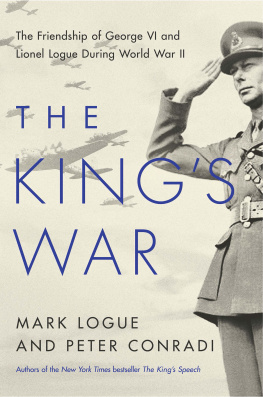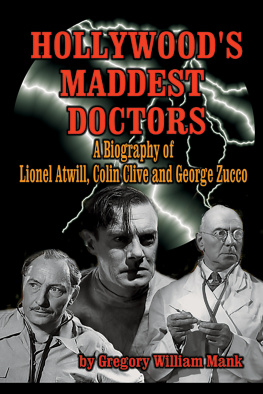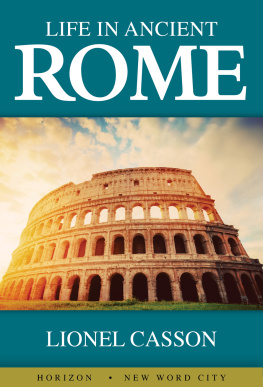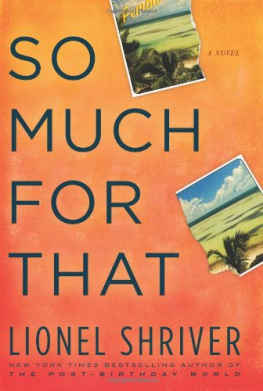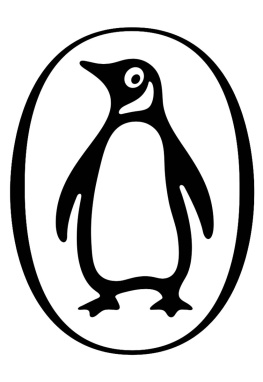Walter Lionel George - A Novelist on Novels 1918
Here you can read online Walter Lionel George - A Novelist on Novels 1918 full text of the book (entire story) in english for free. Download pdf and epub, get meaning, cover and reviews about this ebook. year: 2009, genre: Art. Description of the work, (preface) as well as reviews are available. Best literature library LitArk.com created for fans of good reading and offers a wide selection of genres:
Romance novel
Science fiction
Adventure
Detective
Science
History
Home and family
Prose
Art
Politics
Computer
Non-fiction
Religion
Business
Children
Humor
Choose a favorite category and find really read worthwhile books. Enjoy immersion in the world of imagination, feel the emotions of the characters or learn something new for yourself, make an fascinating discovery.
- Book:A Novelist on Novels 1918
- Author:
- Genre:
- Year:2009
- Rating:4 / 5
- Favourites:Add to favourites
- Your mark:
- 80
- 1
- 2
- 3
- 4
- 5
A Novelist on Novels 1918: summary, description and annotation
We offer to read an annotation, description, summary or preface (depends on what the author of the book "A Novelist on Novels 1918" wrote himself). If you haven't found the necessary information about the book — write in the comments, we will try to find it.
A Novelist on Novels 1918 — read online for free the complete book (whole text) full work
Below is the text of the book, divided by pages. System saving the place of the last page read, allows you to conveniently read the book "A Novelist on Novels 1918" online for free, without having to search again every time where you left off. Put a bookmark, and you can go to the page where you finished reading at any time.
Font size:
Interval:
Bookmark:
The Project Gutenberg EBook of A Novelist on Novels, by W. L. George
This eBook is for the use of anyone anywhere at no cost and with
almost no restrictions whatsoever. You may copy it, give it away or
re-use it under the terms of the Project Gutenberg License included
with this eBook or online at www.gutenberg.org
Title: A Novelist on Novels
Author: W. L. George
Release Date: May 28, 2010 [EBook #32576]
Language: English
*** START OF THIS PROJECT GUTENBERG EBOOK A NOVELIST ON NOVELS ***
Produced by The Online Distributed Proofreading Team at
http://www.fadedpage.net
A BED OF ROSES
THE CITY OF NIGHT
ISRAEL KALISCH[1]
THE MAKING OF AN ENGLISHMAN[2]
THE SECOND BLOOMING
THE STRANGERS' WEDDING
OLGA NAZIMOV (Short Stories)
WOMAN AND TO-MORROW
ANATOLE FRANCE
DRAMATIC ACTUALITIES
THE INTELLIGENCE OF WOMAN ETC.
ON
NOVELS
LONDON: 48 PALL MALL
W. COLLINS SONS & CO. LTD.
GLASGOW MELBOURNE AUCKLAND
Copyright 1918
The chapters that follow have been written in varying moods, and express the fluctuating feelings aroused in the author by the modern novel and its treatment at the hands of the public. Though unrelated with the novel, the chapters on 'Falstaff,' 'The Esperanto of Art,' and 'The Twilight of Genius' have been included, either because artistically in keeping with other chapters, or because their general implications affect the fiction form.
A half of the book has not before now been published in Great Britain and Dominions.
| PAGE |
| A DECEPTIVE DEDICATION |
| LITANY OF THE NOVELIST |
| WHO IS THE MAN? |
| THREE YOUNG NOVELISTS: |
| 1. D. H. LAWRENCE |
| 2. AMBER REEVES |
| 3. SHEILA KAYE-SMITH |
| FORM AND THE NOVEL |
| SINCERITY: THE PUBLISHER AND THE POLICEMAN |
| THREE COMIC GIANTS: |
| 1. TARTARIN |
| 2. FALSTAFF |
| 3. MNCHAUSEN |
| THE ESPERANTO OF ART |
| THE TWILIGHT OF GENIUS |
I have shown the manuscript of this book to a well-known author. One of those staid, established authors whose venom has been extracted by the mellow years. My author is beyond rancour and exploit; he has earned the right to bask in his own celebrity, and needs to judge no more, because no longer does he fear judgment. He is like a motorist who has sowed his wild petrol. He said to me: 'You are very, very unwise. I never criticise my contemporaries, and, believe me, it doesn't pay.' Well, I am unwise; I always was unwise, and this has paid in a coin not always recognised, but precious to a man's spiritual pride. Why should I not criticise my contemporaries? It is not a merit to be a contemporary. Also, they can return the compliment; some of them, if I may venture upon a turn of phrase proper for Mr Tim Healy, have returned the compliment before they got it. It may be unwise, but I join with Voltaire in thanking God that he gave us folly. So I will affront the condemnatory vagueness of wool and fleecy cloud, be content to think that nobody will care where I praise, that everybody will think me impertinent where I judge. I will be content to believe that the well-known author will not mind if I criticise him, and that the others will not mind either. I will hope, though something of a Sadducee, that there is an angel in their hearts.
I want to criticise them and their works because I think the novel, this latest born of literature, immensely interesting and important. It is interesting because, more faithfully than any other form, it expresses the mind of man, his pains that pass, his hopes that fade and are born again, his discontent pregnant with energy, the unrulinesses in which he misspends his vigour, the patiences that fit him to endure all things even though he dare them not. In this, all other forms fail: history, because it chronicles battles and dates, yet not the great movements of the peoples; economics, because in their view all men are vile; biography, because it leads the victim to the altar, but never sacrifices it. Even poetry fails; I do not try to shock, but I doubt whether the poetic is equal to the prose form.
I do not want to fall into the popular fallacy that prose and poetry each have their own field, strictly preserved, for prose is not always prosy, nor poetry always poetic; prose may contain poetry, poetry cannot contain prose, just as some gentlemen are bounders, but no bounders are gentlemen. But the admiration many people feel for poetry derives from a lack of intelligence rather than from an excess of emotion, and they would be cured if, instead of admiring, they read. Some subjects and ideas naturally fall into poetry, mainly the lyric ideas; 'To Anthea,' and 'The Skylark' would, in prose, lie broken-pinioned upon the ground, but the exquisiteness of poetry, when it conveys the ultimate aspiration of man, defines its limitations. Poetry is child of the austerity of literature by the sensuality of music. Thus it is more and less than its forbears; speaking for myself alone, I feel that 'Epipsychidion' and the 'Grecian Urn' are just a little less than the Kreutzer Sonata, that Browning and Whitman might have written better in prose, though they might thus have been less quoted. For poetry is too often schwaermerei, a thing of lilts; when it conveys philosophical ideas, as in Browning and in that prose writer gone astray, Shakespeare, it suffers the agonising pains of constriction. Rhyme and scansion tend to limit and hamper it; everything can be said in prose, but not in poetry; to prose no licence need be granted, while poetry must use and abuse it, for prose is free, poetry shackled by its form. No doubt that is why poetry causes so much stir, for it surmounts extraordinary difficulties, and men gape as at a tenor who attains a top note. However exquisite, the scope of poetry is smaller than that of prose, and if any doubt it let him open at random an English Bible and say if Milton can out-thunder Job, or Swinburne outcloy the sweetness of Solomon's Song.
More than interesting, the novel is important because, low as its status may be, it does day by day express mankind, and mankind in the making. Sometimes it is the architect that places yet another brick upon the palace of the future. Always it is the showman of life. I think of 'serious books,' of the incredible heaps of memoirs, works on finance, strategy, psychology, sociology, biology, omniology ... that fall every day like manna (unless from another region they rise as fumes) into the baskets of the reviewers. All this paper ... they dance their little dance to four hundred readers and a great number of second-hand booksellers, and lo! the dust of their decay is on their brow. They live a little longer than an article by Mr T. P. O'Connor, and live a little less.
The novel, too, does not live long, but I have known one break up a happy home, and another teach revolt to several daughters; can we give greater praise? Has so much been achieved by any work entitled The Foundations of the Century, or something of that sort? The novel, despised buffoon that it is, pours out its poison and its pearls within reach of every lip; its heroes and heroines offer examples to the reader and make him say: 'That bold, bad man ... you wouldn't think it to look at me, who'm a linen-draper, but it's me.' If, in this preface, I may introduce a personal reminiscence, I can strengthen my point by saying that after publishing
Font size:
Interval:
Bookmark:
Similar books «A Novelist on Novels 1918»
Look at similar books to A Novelist on Novels 1918. We have selected literature similar in name and meaning in the hope of providing readers with more options to find new, interesting, not yet read works.
Discussion, reviews of the book A Novelist on Novels 1918 and just readers' own opinions. Leave your comments, write what you think about the work, its meaning or the main characters. Specify what exactly you liked and what you didn't like, and why you think so.


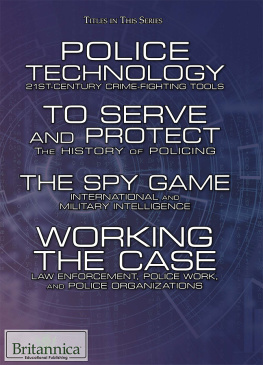

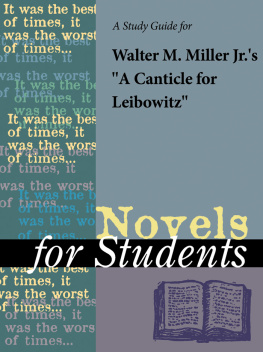
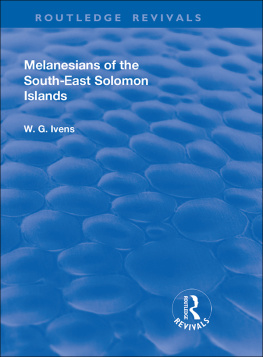
![Walter Shaw Sparrow - The Fifth Army In March 1918 [Illustrated Edition]](/uploads/posts/book/291199/thumbs/walter-shaw-sparrow-the-fifth-army-in-march-1918.jpg)

